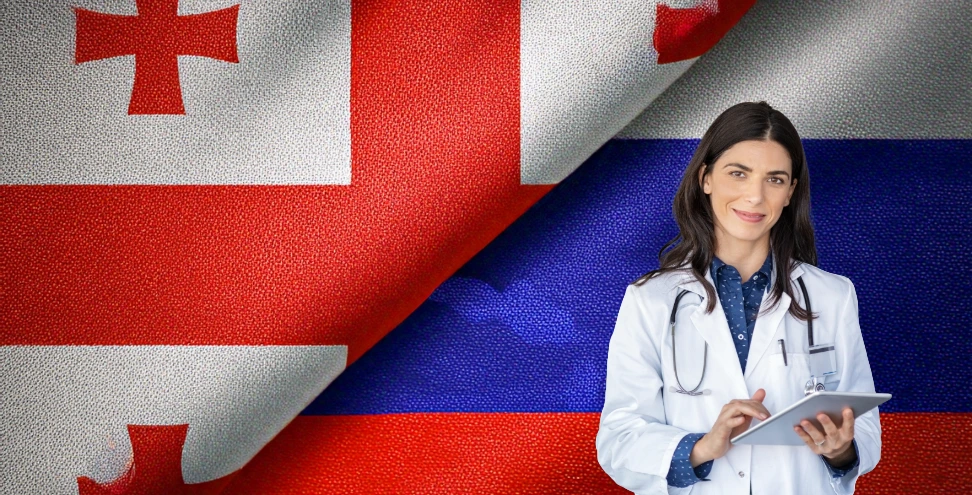Table of Contents
- Engineering at National University of Science and Technology MISiS Russia – Highlights
- Why Study Engineering at National University of Science and Technology MISiS Russia?
- National University of Science and Technology MISiS Engineering Rankings
- National University of Science and Technology MISiS Engineering Acceptance Rate
- Popular Engineering Courses at National University of Science and Technology MISiS Russia
- Admission Requirements to Engineering at National University of Science and Technology MISiS Russia
- Cost of Engineering at National University of Science and Technology MISiS Russia for Indian Students
- Scholarships at National University of Science and Technology MISiS Russia
- Job Prospects for Engineering at Russia
- FAQs – Engineering at National University of Science and Technology MISiS Russia
Engineering at National University of Science and Technology MISiS Russia – Highlights
The National University of Science and Technology MISiS (NUST MISiS) in Russia is located in the bustling city of Moscow. This university is renowned for its cutting-edge research facilities and diverse engineering programs. Students benefit from an innovative curriculum that merges theoretical knowledge with practical application, preparing them for the demands of the global job market.
NUST MISiS offers a dynamic and international environment, attracting students from all around the world. The city of Moscow provides an enriching cultural experience, blending historical landmarks with modern amenities. This combination makes studying engineering at NUST MISiS a unique and rewarding experience.
Why Study Engineering at National University of Science and Technology MISiS Russia?
Studying engineering at NUST MISiS offers numerous advantages, including access to state-of-the-art laboratories and research centers. The university's strong industry connections provide students with ample internship and job placement opportunities. Additionally, the faculty consists of highly qualified experts who are well-versed in their respective fields.
- Access to cutting-edge research facilities.
- Strong industry connections and internship opportunities.
- Diverse international student community.
- Highly qualified and experienced faculty.
National University of Science and Technology MISiS Engineering Rankings
| Ranking | Source |
|---|---|
| Top 300 | US News and World Report |
| Top 200 | QS World University Rankings |
| Top 250 | Times Higher Education (THE) |
| Top 400 | Academic Ranking of World Universities (ARWU) |
National University of Science and Technology MISiS Engineering Acceptance Rate
- The acceptance rate for engineering programs at NUST MISiS is approximately 35%.
- This competitive rate reflects the high standards and rigorous selection process of the university.
Popular Engineering Courses at National University of Science and Technology MISiS Russia
- Bachelor's Programs:
- Materials Science and Engineering: Focuses on the development and application of new materials.
- Metallurgy: Covers the extraction, refining, and processing of metals and alloys.
- Nanotechnology: Involves the study and manipulation of materials at the nanoscale.
- Master's Programs:
- Advanced Materials Science: Provides in-depth knowledge of cutting-edge materials and their applications.
- Innovative Engineering Technologies: Focuses on the latest innovations and technological advancements in engineering.
- Energy Systems: Covers the design and management of sustainable energy systems.
Admission Requirements to Engineering at National University of Science and Technology MISiS Russia
Admission to the engineering programs at NUST MISiS requires a combination of academic excellence and proficiency in relevant subjects. Prospective students must meet specific entry requirements and submit necessary documents.
- Entry Requirements:
- National University of Science and Technology MISiS Engineering entrance exam.
- National University of Science and Technology MISiS Engineering entry requirements.
- Eligibility Criteria:
Applicants must have completed their secondary education with a strong emphasis on mathematics and science subjects. Additionally, they should demonstrate proficiency in English or Russian, depending on the program's language of instruction.
For master's programs, a relevant undergraduate degree in engineering or a related field is required. Work experience and research publications may enhance an applicant's profile.
- Documents Required:
- Completed application form.
- Academic transcripts.
- Proof of language proficiency (IELTS, TOEFL, or equivalent).
- Statement of purpose.
- Letters of recommendation.
- Passport copy.
- Resume/CV.
- Proficiency Test:
Students must demonstrate proficiency in the language of instruction. For programs taught in English, IELTS or TOEFL scores are required. For programs in Russian, a TORFL certification may be necessary.
- Visa Process:
- Obtain an invitation letter from NUST MISiS.
- Apply for a student visa at the Russian embassy or consulate in your home country.
- Submit required documents, including passport, visa application form, and invitation letter.
- Attend a visa interview, if required.
Cost of Engineering at National University of Science and Technology MISiS Russia for Indian Students
- Tuition Fees:
The annual tuition fee for engineering programs at NUST MISiS ranges from $3,000 to $5,000, depending on the specific course and level of study.
- Cost of Living:
The cost of living in Moscow for students is approximately $400 to $600 per month, covering accommodation, food, transportation, and other expenses.
| Expense | Estimated Cost (per year) |
|---|---|
| Tuition Fees | $3,000 - $5,000 |
| Accommodation | $1,200 - $2,400 |
| Food | $1,200 - $1,800 |
| Transportation | $200 - $300 |
| Miscellaneous | $400 - $600 |
Scholarships at National University of Science and Technology MISiS Russia
NUST MISiS offers a variety of scholarships to support international students in their studies. These scholarships are based on academic merit, research potential, and financial need.
- Russian Government Scholarship: Covers tuition fees and provides a monthly stipend.
- NUST MISiS Scholarship: Awarded to outstanding students based on academic performance.
- International Student Scholarship: Supports students from specific countries with partial or full tuition waivers.
Job Prospects for Engineering in Russia
Graduates of engineering programs at NUST MISiS have excellent job prospects both in Russia and internationally. The strong industry connections and practical training provided by the university ensure that students are well-prepared for the job market.
| Job Title | Average Salary (per year) |
|---|---|
| Materials Engineer | $50,000 - $70,000 |
| Metallurgical Engineer | $45,000 - $65,000 |
| Nanotechnology Engineer | $55,000 - $75,000 |
FAQs – Engineering at National University of Science and Technology MISiS Russia
- Can I work while studying at NUST MISiS?
Yes, international students are allowed to work part-time while studying. However, it's important to balance work and studies to maintain academic performance.
- What are the advantages of studying engineering at NUST MISiS?
Studying at NUST MISiS provides access to world-class research facilities, a diverse student community, and strong industry connections that enhance career prospects.
- What is the average salary for engineering graduates from NUST MISiS?
The average salary for engineering graduates from NUST MISiS ranges from $50,000 to $75,000 per year, depending on the specialization and job role.
- What is the duration of the engineering programs at NUST MISiS?
The duration of bachelor's programs is typically four years, while master's programs usually take two years to complete.
- What exams are required for admission to NUST MISiS engineering programs?
Applicants are required to take the NUST MISiS Engineering entrance exam. Additionally, proficiency in English or Russian may be demonstrated through IELTS, TOEFL, or TORFL scores.
- What are some popular engineering courses at NUST MISiS Russia?
Popular engineering courses include Materials Science and Engineering, Metallurgy, Nanotechnology, Advanced Materials Science, Innovative Engineering Technologies, and Energy Systems.



